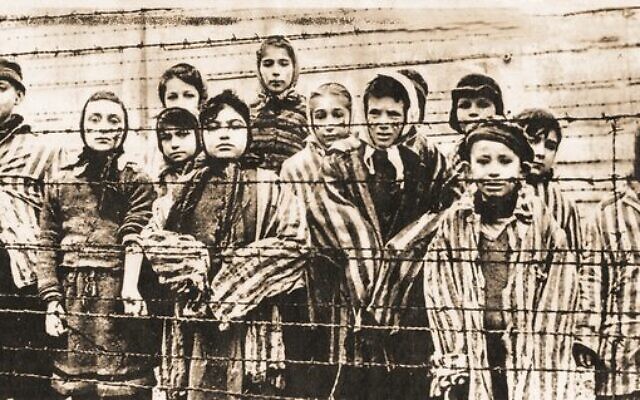This Yom Hashoah commit to three simple words
"We all make choices. Important ones can and do shape our world. That is what we teach when educating about the Holocaust."

I will remember.
Peter’s message: “Our choices define who we are to ourselves and to others.” (Student, Elizabeth Murdoch College)
So wrote a participant of the (newly renamed) Melbourne Holocaust Museum education program after hearing child survivor Peter Gaspar recount his experiences of being hidden during the war by Christians. Peter and his family survived because of courageous choices made by others.
We all make choices. Important ones can and do shape our world. That is what we teach when educating about the Holocaust.
Reflecting on remembrance this Yom Hashoah, we know that some choose to remember and some choose to forget. At our museum we encourage students to take an active role in remembrance by framing our reflection cards with three simple words: “I will remember.”
“I will remember … that Abram lost his family cause [sic] of his religion which is unjust.” (Abbas, Mt Hira College)
So wrote a student named Abbas, who witnessed a witness – Abram Goldberg – this year. It will stay with him for some time. I regularly encounter adults who recall coming to the museum as school students and meeting survivors. For most, it remains a powerful memory.
But what of the Jewish community? Come Yom Hashoah, what choices do we make? Do we light candles and say prayers? Do we attend commemorative events? This year in Melbourne there is a virtual, communal commemoration called “Remembering Together”. People are encouraged to gather with friends or family in their own homes to watch this powerful presentation, and even discuss the issues raised. What will you do?
“I will remember … the millions of individual stories behind the statistics.” (Charlie, Dromana Secondary College)
If your relatives were impacted by the Holocaust, how does this influence your own decision to remember or to forget? Is it too painful, too traumatic for you to contemplate? It is unfathomable thinking about what they endured; how did they cope; how did they get on with life? But what is the danger in forgetting? Isn’t it healthy to move away from trauma? Isn’t this part of a healing process?
Last week many of us sat around a seder table with family and retold the story of atrocities committed thousands of years ago to Jews in Egypt. The Holocaust is an event that happened in living memory, a crime against humanity of such immense significance that it is taught in schools across this country. It is hard to face the reality of the Holocaust and consider that while Nazis and their collaborators hunted and murdered Jewish people across Europe, few stood up and helped.
“I will remember … how not enough people stood up for the Jewish people and maybe if more did things may have been different.” (Student, Marist College Bendigo)
Understandably we need to find a balance between remembering the past and obsessing over it in an unhealthy way. During the Holocaust Jews were victims on a massive scale, but we do not need to collectively be defined by this victimhood. We can learn from the example of Holocaust survivors who have risen above their traumatic experiences and are earnestly trying to make the world a better place.
And consider this, if we want others to remember the Holocaust, we must actively and demonstrably remember it ourselves.
In recent times our government, with bipartisan support, committed significant funds to establishing Holocaust museums and learning centres across Australia. They well understand the need for the wider community to hear the survivors’ stories and learn the vital lessons of the Holocaust, lessons centred around the dangers of racism and antisemitism. They appreciate the importance of safeguarding the documents, video testimonies and artefacts, the precious evidence that somehow survived along with the people themselves. Museums such as ours rely on communal support, in the form of donations of money and artefacts, and volunteering of time. You too can make these choices in acknowledging the importance of remembrance. Document your family story, donate any historical material you have, find out what support such institutions need.
“I will remember … that I have learnt about the past and how important it is to protect it.” (Student, Beaconhills Secondary College)
And when we read the news today, see what is happening in Ukraine, and think about the spectre of war in Europe, we can feel frightened and helpless. We may think it is far away and there is nothing we can do, but never forget Peter’s words, “Our choices define who we are.”
Do we look away and become indifferent or do we stay informed and consider just how can we make a difference?
“I will remember … the courage of others during dark times and the hope which inspired them.” (Student, Box Hill High)
We all make choices. This Yom Hashoah why not commit to these three simple words: “I will remember.”
Jayne Josem is CEO of the Melbourne Holocaust Museum.

comments